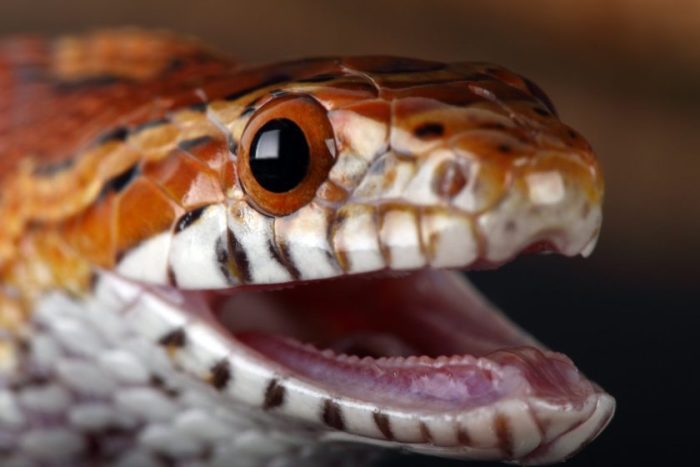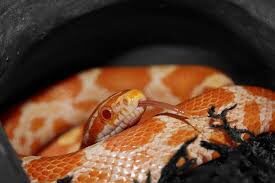
“7 Key Insights: Do Corn Snakes Bite? Understanding Behavior, Factors, and Safe Handling Tips”
Corn snakes, scientifically known as Pantherophis guttatus, are popular pet reptiles known for their striking colors and docile nature. As an aspiring corn snake owner, understanding their behavior, including their biting tendencies, is crucial. In this article, we will delve into the world of corn snakes to answer the question: Do corn snakes bite?
The Nature of Corn Snakes
Corn snakes are non-venomous constrictor snakes that are native to North America. They are often found in grasslands, forests, and abandoned buildings. In captivity, they have become a beloved choice among reptile enthusiasts due to their manageable size, ease of care, and beautiful patterns.
Factors That Influence Corn Snake Behavior
Several factors can influence the behavior of corn snakes. These include genetics, age, individual temperament, and environmental conditions. While corn snakes are generally considered docile and non-aggressive, it is essential to remember that individual snakes may exhibit variations in behavior.
Do Corn Snakes Bite? Exploring Their Biting Behavior
Yes, corn snakes are capable of biting. However, it’s important to note that biting is not their default behavior. Corn snakes are known for their relatively mild temperament and are usually more inclined to flee than to bite when they feel threatened. Biting is usually a last resort for self-defense. Reasons Why Corn Snakes May Bite
Reasons Why Corn Snakes May Bite
While corn snakes are generally corn snakes non-aggressive some situations may trigger them to bite. Here are a few reasons why a corn snake may bite:
Mistaken Identity
Corn snakes may bite if they mistake a hand or any other object for prey. It’s essential to avoid sudden movements and always handle them with care.
Stress or Fear
If a corn snake feels threatened, stressed, or fearful, it may resort to biting as a defensive response. This can happen if they are mishandled or if their enclosure is not adequately set up to meet their needs.
Protective Behavior
Female corn snakes, especially when guarding their eggs or newly hatched offspring, may exhibit protective behavior and may bite if they perceive a threat to their young.
Reducing the Risk of Getting Bitten by a Corn Snake
While it’s impossible to eliminate the risk of a corn snake bite, there are several measures you can take to minimize the likelihood of it happening:
Proper Handling Techniques
Always handle corn snakes with care, ensuring that you support their body and avoid making sudden movements that may startle them.
Create a Stress-Free Environment
Providing a suitable habitat with adequate hiding places, proper temperature, and humidity levels will help keep your corn snake stress-free and less likely to bite.
Regularly Interact with Your Snake
Regular interaction with your corn snake can help build trust and familiarity, reducing the chances of them feeling threatened or fearful. Gently introduce your hand into their enclosure and allow them to become accustomed to your presence.
Avoid Disturbing the Snake During Feeding or Shedding
Corn snakes are more sensitive and prone to defensive behavior during feeding or shedding. It is best to avoid handling them during these times to minimize the risk of a bite.
 Do Corn Snakes Bite
Do Corn Snakes Bite
Handling Corn Snakes Safely
When handling corn snakes, follow these guidelines to ensure both your safety and the well-being of the snake:
- Wash your hands before and after handling the snake to avoid transferring any germs or scents that might cause stress.
- Approach the snake calmly and confidently, using slow and deliberate movements.
- Support the snake’s body by allowing it to wrap around your hand or arm.
- Avoid squeezing or putting excessive pressure on the snake, as this may make them feel threatened.
- Always supervise interactions with children and teach them how to handle the snake gently.
What to Do If You Get Bitten by a Corn Snake
If you do get bitten by a corn snake, it’s important not to panic. Remember that their bites are generally harmless and non-venomous. Follow these steps:
- Stay calm and avoid jerking your hand or arm away, as sudden movements may worsen the bite.
- Gently and slowly try to encourage the snake to release its grip by easing your hand or finger out of its mouth.
- Wash the bite area with mild soap and water to reduce the risk of infection.
- Monitor the bite for any signs of swelling, redness, or unusual pain. If these symptoms persist or worsen, seek medical attention.
Conclusion
In conclusion, corn snakes are generally docile and non-aggressive reptiles. While they are capable of biting, it is typically a defensive response rather than aggressive behavior. By understanding their nature, providing a suitable environment, and handling them with care, you can greatly minimize the risk of getting bitten. Remember to always approach your corn snake calmly and confidently, ensuring a positive and safe interaction.
Do Corn Snakes Bite
(FAQs)
No, corn snake bites are generally harmless as they are non-venomous. However, it is essential to properly clean the bite and monitor it for any signs of infection.
Yes, corn snakes can be tamed through regular, gentle handling and positive interactions. They can become accustomed to their owners and show less defensive behavior over time.
To prevent bites, handle your corn snake with care, provide a stress-free environment, and avoid disturbing them during feeding or shedding.
While you cannot train a corn snake in the same way you would train a dog, regular positive interactions can help build trust and reduce the likelihood of defensive biting.
